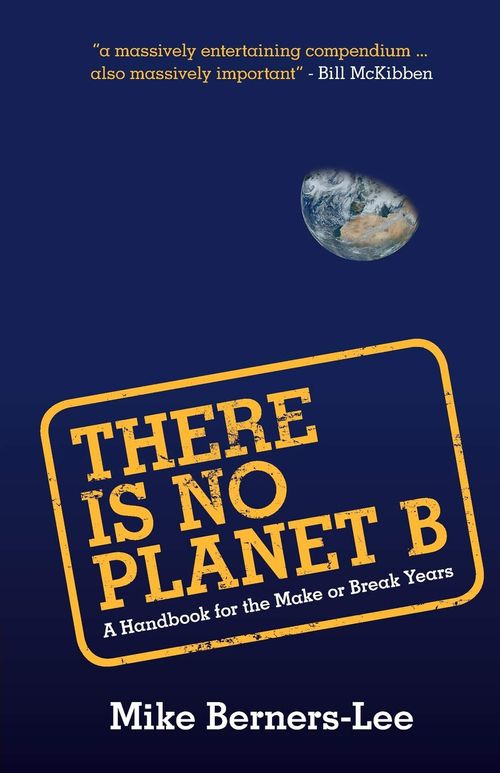What needs to happen to avoid climate devastation? Mike Berners-Lee speaks out
Jan 08, 2021 · 2 mins read
0
Share

We are living in the Anthropocene. Humans are no longer subject to the whims of their environment. Instead, we are the creators and the planet bends to our wishes. On the surface this has its advantages (longer life expectancy etc), but there are consequences to this dominance.
Save
Share
Since the Industrial Revolution, Earth's average temp has risen by just over 1C. This may seem insignificant, but we are already starting to experience the ill effects. The PCC of 2015 saw an agreement to cap the increase at 1.5C, because hitting 2C could trigger a catastrophe.
Save
Share
To stay in line with the Paris Agreement, Mike Berners-Lee writes in There Is No Planet B, the world's remaining fossil fuels must stay in the ground. Coal generates the greatest CO2 emissions, but we must also find alternative energy sources to oil and gas.
Save
Share
If we covered only 0.1% of the Earth's surface with solar panels, they would meet all of our current energy needs. Wind and hydro energy are a useful supplement, but solar is, by far, the most efficient and practical renewable energy source.
Save
Share
Added to this, we must capture some of the existing carbon in the atmosphere (at present, we emit 35 billion tonnes a year). There are two methods: 1) Capture carbon at the point of extraction. Present technology enables us to do this, but it's not an efficient process.
Save
Share
2) Capture carbon from the ambient air. Sadly, our technology is no way near being able to accomplish this complex feat. We need greater investment in research and development.
Save
Share
A potential source for these investment funds could be a worldwide carbon tax. To be meaningful, it would have to be both very high and enforceable. A figure of $300 per tonne would raise a much needed $10 trillion per year.
Save
Share
This would require some form of global governance, in addition to national action. Nations must act for the greater good of humanity even when climate change appears to be of benefit (e.g. Russia's northern ports being accessible for more months of the year due to melting ice).
Save
Share
The free market is not equipped to deal with this challenge. Regulation is needed and systems must be put in place to enforce a global deal. The profit motive, as a driving force for business, must be re-evaluated. The idea that GDP reflects a nation's success should be rejected.
Save
Share
If you're wondering how you can help, reduce your beef and dairy consumption. Food and land related emissions account for 23% of the worldwide total - mostly for the growing of crops and removal of forests to feed cattle. A small dietary change can have a positive impact.
Save
Share
0